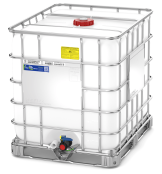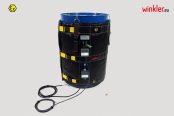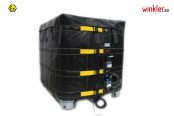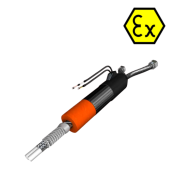Static Earthing Control For Road Tankers | Is Truck Grounding Necessary?
Published 14 Mar 2024
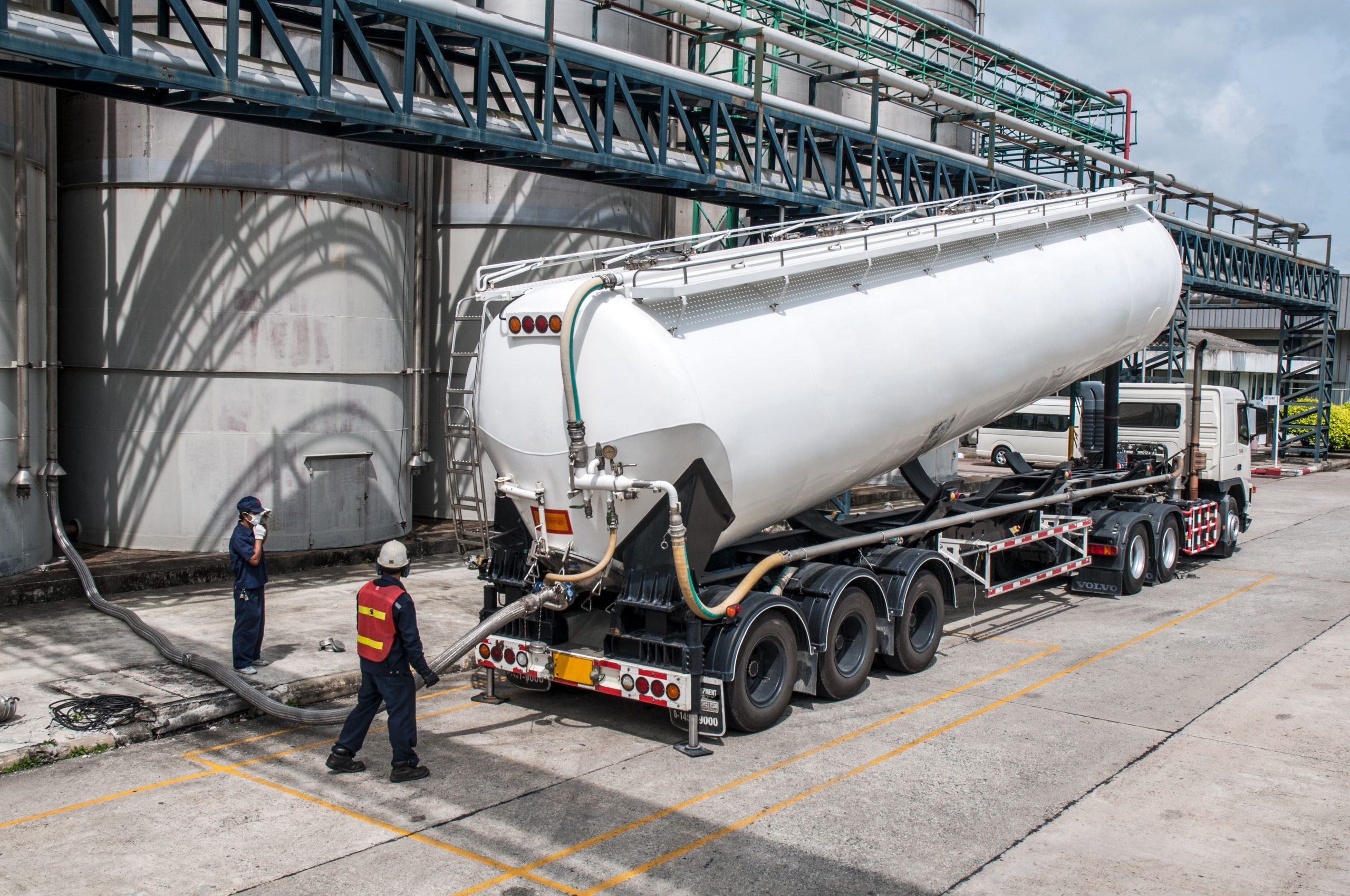
Static Earthing For Road Tankers In Hazardous Areas
Static Earthing Control For Road Tankers
When static discharge forms a risk, for instance in the event of a dust or gas explosion, truck earthing will be necessary. The product that is loaded from or onto the bulk truck is therefore an important factor in determining whether truck earthing is necessary. A non-combustible product such as salt or water, for example, will not pose a risk of being ignited by a static spark during loading or unloading.
This is different for sugar or alcohol, for example. These products can, in the right air/dust concentration (for sugar dust) or air/alcohol vapour, in combination with a static spark of sufficient energy content, result in an explosion.
In order to prevent such incidents, truck earthing should be carried out to ensure that any static charges on the truck are safely discharged before transferring the product. Truck earthing involves connecting a grounding cable from the truck to a grounding point on the loading/unloading system to allow any static charges to safely dissipate.
➡ Thorne & Derrick together with StuvEx supply static bonding, static earthing systems and grounding solutions to the hazardous area EX industries with over 35 years experience.
The transport and processing industries are extremely aware of the dangers of the static electricity. In fact, StuvEx, through various awareness campaigns, has been at the forefront in making sure that industry is aware of the dangers. The DIY approach to truck earthing – a length of cable and a couple of crocodile clips – is not a good or safe option. The TES01-V2 Truck Earthing & Grounding System with its various modifications is effectively the next word in static safety.
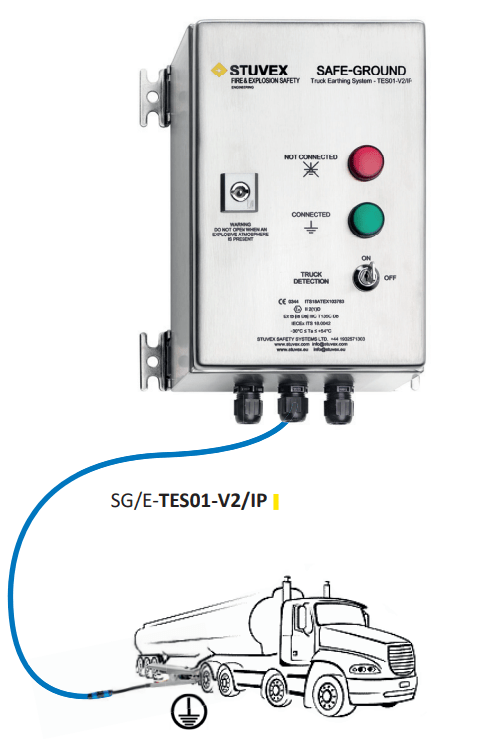
TES01-V2 Truck Earthing System
Is Truck Grounding Necessary?
Static Earthing Control
The electrical charging of a bulk truck and load can take place during road transport and during loading/unloading of the load, a bulk truck can be charged up to tens of kV and give rise to electrostatic sparks up to 100mJ. Whether this energy quantity is sufficient for an explosion depends on the minimum ignition energy (MOE) of the product to be loaded.
For flammable vapours/gases, the amount of ignition energy required to provide ignition (MOE) will usually be < 1 mJ. This relatively small amount of ignition energy required to ignite a flammable gas or vapour means that truck grounding will always be a requirement in that situation in order to minimise the risk of explosion during loading. Compared to flammable vapours/gases, the values of the minimum ignition energy (MOE) for air/dust mixtures are often higher.
So the question remains is grounding required for electrically conductive products to be loaded?
The answer is simple, YES. This is because conductive products can be electrically charged and when discharging, this static charge poses a risk making truck grounding essential in this situation.
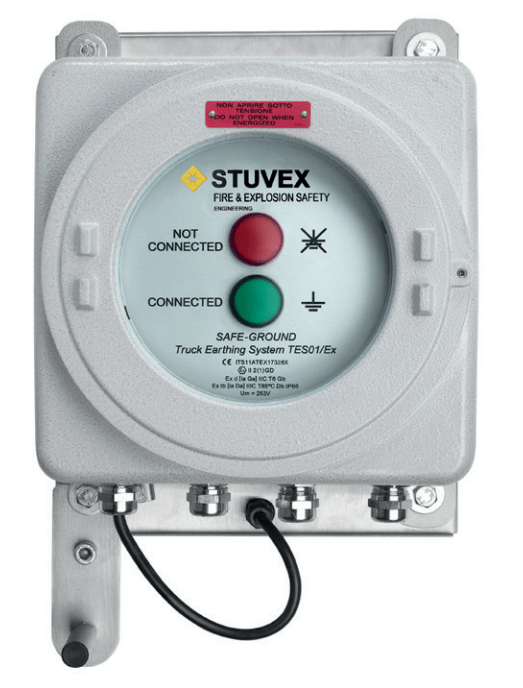
How does such a grounding work?
With a single yellow/green earth wire and clamp, you could already make an earth connection. However, the truck grounding systems applied nowadays in an industrial and ATEX zoned environment are subject to more requirements.
- The truck grounding systems must be ATEX certified
- By means of a measurement (capacitive) the earthing unit can determine whether the connection is on the earthing point of a truck and not on another metal object
- This ‘forces’ the truck driver to place the ATEX earthing clamp correctly on the truck, and thus increases the establishment of a correct (thus safe) earthing connection
- During the period that the clamp is attached to the earthing point of the truck, the resistance is checked to ensure that it remains sufficiently low. A cable break or bad connection between the earthing unit and the clamp will be immediately detected (a resistance value < 10Ω is recommended). A clear indication on the earthing unit, by means of lights, indicates to the user when a correct earthing connection has been made
- Potential-free contacts integrated in the earthing unit can be used, for example, to switch on a pump, blower or valve when a correct earthing connection has been made. This creates an automatic start-up condition for safe loading and unloading
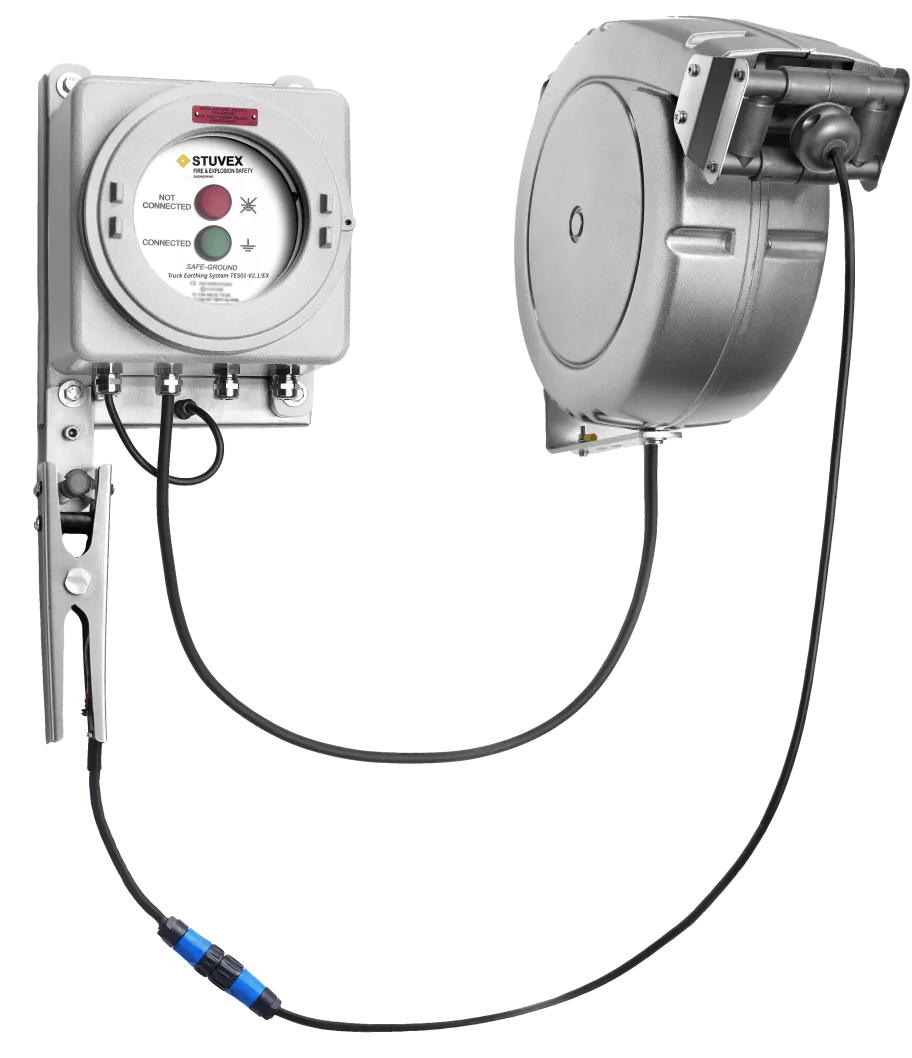
Do these earthing units have to be inspected annually?
As a rule, truck earthing units are not inspected annually for proper functioning; ultimately, they are usually self-monitoring. A check on the proper functioning of the truck grounding system (depending on the type of grounding system) can usually be carried out and recorded by the end-user.
Insurance companies may, however, impose additional requirements on the end-user such as having the earthing system checked by a third party. If the earthing unit is placed in an ATEX zone, it is subject to the periodic inspection of ATEX equipment.
Thorne & Derrick are now working in partnership with StuvEx and in close client consultation to highlight awareness, education and mitigation of ignition risk associated with static electricity. Discharges of static electricity pose health and safety dangers to people and plant, contact us to discuss your concerns and how we can provide static earthing control measures.
Further Reading
- Thorne & Derrick Appointed UK Exclusive Channel Partner of StuvEx Static Earthing Systems
- Truck Earthing | How Does Effective Earthing Prevent Hazardous Electrostatic Discharges?
- Innovative Multi-Point Earthing System from StuvEx

Thorne & Derrick support the technical specification and competitive supply from stock of standard and customised static earthing solutions for the explosion protection of process operations and manufacturing applications when bulk handling combustible or flammable gases, liquids or powders.







